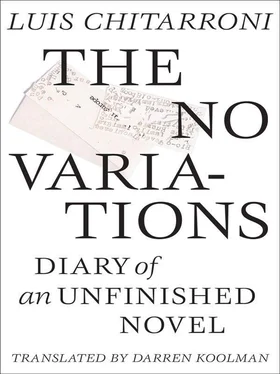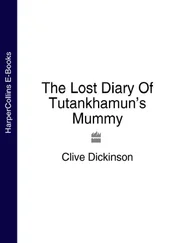Belisario confessed, smoothing his moustache, trying to be subtle but avoiding understatement, that I reminded him of a Hungarian consul in a movie by Molnar [Lubitsch]. He emphasized his resemblance to a small graceful animal whose tiny cage left him room enough to do little else than chew the bars and lick his claws. Belisario, who’s still five or six years older than me, belongs to another generation. When I first met him, he was wearing a chambergo, so I thought he was more like a century older than me. Who knows what the kids think of me, the ones eighteen or twenty years younger? It’s true that differences shrink between thirty and forty, and they shrink even more between forty and fifty. But sixty establishes its own law of gravity. And many fell away, like Belisario and me. While others continued gravitating : in the case of Lalo, without making much progress. I see him leaving, squeezing through Vidt’s narrow doorway, like a bony-ass coward. It helps to be of an age where one can be irresponsible without being accountable [backed by the myth about youth, which covers any misstep or error with the lie of singularity and potential]. How many excuses are made for mediocrity in the young! They said he lives in the Balearics, perhaps in Banyalbufar — where Elena and I once planned to elope — living his life immersed in the company of others, in better company than ours.
Nicasio Urlihrt, The X-Positions
Eiralis: Nurlihrt via Empson: Nerrida
3.
The collaborative writing at Agraphia required at least two pleasant adherencies. At least two simultaneous missions and a lack of purpose encouraged (and attenuated) by the lack of evidence for the anonymity. The act of writing therefore required confinement, indulgence, speed. Conditions ideal for lovers. Writing together will be: Elena and Nicasio, Inés and Nicasio, Elena and Lalo, Inés and Elena. But not Nicasio and Lalo, due to the lack of proof (although there are suspicions “The Mass” came to be on that inexplicable [clandestine] night Nicasio and Lalo colluded together). In a publication made possible by a bevy of accomplices / adversaries, it was inevitable and went with the job. Now, according to Agraphia ’s presocratic numerology, two was not a number. Like good primitives, they needed a figure that lacked the balance of two, the unity of one. From this came “ Agraphia ’s principle of adultery,” which implies a number more than two, an interloper: a third wheel, an “ intruder in the dust .”
The Cristóbal Niaras, Agraphia: Chance Laboratory
The three periods of Agraphia / Allusive can be classified before the conclusion. The predominance of Elena, with her luminous vocation of vanguard and error, her puerilities and idiolectal glossaries, (noninterventionism, errancy , contrerejet, renegations, freakatives, inindicial , inkhorn, lepro and graphorrhea , [naiserie], malapropism, oliguria, umbilicapedia, panxiety, titubiosis, xelexion, zeuxidia ), her unyielding latticework [revision of final proofs from the editor, accounting for foreign words with a dictionary in hand] lasts until the first trip to Europe. Period of estrangement that led Sabatani to inaugurate a period of lapsing, the one corresponding with “Salon of Independents,” known later as “Diet of Worms.”
The period known as the Luiniad lasted as long as the Council of Trent (eighteen years), and according to Urlihrt, the period should’ve been called “Trent,” but, because of a lack of foresight and planning, the result was less ferocious, less feracious. But such foresight and planning culminates “by its own means and fears, in the atrocities of the worst of Argentine dictatorships,” alarumed Isabel [Teodelina] Teischer, “with remarkable boldness” in a literary pamphlet (Matilde Urbach publishers, s/f). Proof of this can be read in “Lycergical Glossary to Sircular Cymmetry,” “Ysir,” “The Dreadmist,” “Out of a Greek Gift,” and a great number of stories that aren’t seen in canonical anthologies of Argentine literature.” We can add every other anthology, including the lamest of those published in those lamest of years.
Eloy Armesto, The Sycophant’s Soliloquy , in Parts without Justification , for the Symposium on Invisibility (included with modifications in From Secret Zero to a Number Less. Biography of the Invisible )
#4
Going against Occam’s razor, the nominative entities of Agraphia are born to reproduce themselves, to proliferate, and after a short time, be discarded. Their life-cycle can be compared with that of the common cold virus. “Each syllable of their names, a germ, a potential pandemic.” Categorical proliferation, diametrical. The names function as algebraic permutations [that make no difference to the final result]. They gestate, accumulate, are collected, arrayed, and then spent (in the double sense). The metastasis occurs where fame is hierarchically [unevenly] distributed. A sectarian argot of terms: first, the “paludinal [glandular] glitterati” in Septic Midrash . Then, the “phalansterian demographic” constructed to “contradict the anecdote.” In the journal, “there is no hint of theory,” except what makes you rich. Theory, they proclaimed, plagiarizing Proust, is the price tag on a gift. Oliverio Lester proclaimed that admission into Agraphia relies not so much on intellectual common ground, but on the postulant’s mandatory baptism at the font. With regard to the oblivion of narrative, “no one who had anything to say dared to write [be a literary casualty].” It is Nicasio Urlihrt’s motto and blazon.
Cristóbal Niaras, Agraphia: Chance Laboratory
#5
The Epsilom , called a “Treatise on Small Quantities,” is a difficult novel to describe (and yet, I’ll try, because I want to justify [my] our admiration [for Zi]). The protagonists, a gang of [perennially] homeless guys, all of them enfants savants , go wandering around making friends with the [common] people. According to the narrator, they have two serious flaws [one of diction and another of understanding]: stammering whenever they attempt to make a comparison, so that the second term never arrives [appears], or it is one the interlocutor / adversary can simply ignore, of a type “equivalent to Mezzaloth when …” The first adventure occurs in Patagonia. The epsilom, in this case, is … [Medellín the good], “The Imitation of an Ounce,” “Xochimilk.”
In order to begin late, and beginning for no particular reason, the epsilom live their lives in reverse: they’re born as geriatrics in the future and live each day improving on that condition, rejuvenating, reaching full maturity at roughly ten years old. [However,] Due to time’s reversibility, and a complementary mechanism of adaptability, for which Zi has an explanation I cannot remember (which saves me having to explain it), the events in their lives are mapped out and so anticipated [[as long as there is [intervened] was an accident]] by ordinary mortals who live their lives in the conventional way, and for whom the clocks run normally [“correctly,” according to the dogmatic Urlihrt], an idea that accounts for [the now outdated admiration of] Zi’s precocity.
It makes no difference whether one reaches today from yesterday or tomorrow: for both past and present meet at the crossroad of the present moment …
So the Zi Benno of “Xoch.” still hasn’t attained the remarkable maturity of a wunderkind and has to be around thirty years old. The Zi Daisy Ashford wouldn’t appear for another twenty years or so.
When I mentioned her, he didn’t seem to remember her.
In the early eighties, Mario Levin invited me to write for his journal, Cinegrafo . For the first issue, I drew upon all my ignorance and pedantry to write a piece about cinematic rock. I reviled the genre, vindictively lambasted everything I’d seen, doing so, I believe, with juvenile zeal (although, at twenty-one, I wasn’t that young), to make myself worthy of inclusion.
Читать дальше












